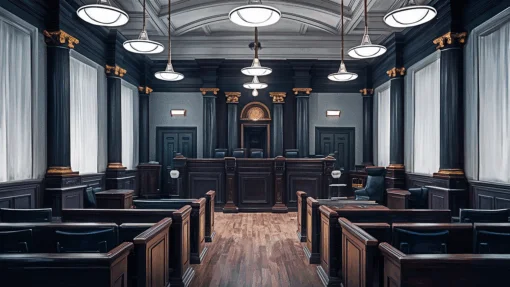
- Originally Published on May 8, 2025
Can You Sue for Defamation Without a Lawyer?
Filing a defamation lawsuit without legal representation is legally permissible but presents specific challenges. At Minc Law, we regularly consult with individuals weighing the decision to pursue defamation claims independently. This article provides concrete information about self-representation in defamation cases, including specific procedural requirements, common pitfalls, and situations where professional legal assistance becomes essential.
Understanding Defamation Law’s Specific Requirements
Defamation law requires proving several distinct elements: a false statement of fact (not opinion) about the plaintiff; publication to at least one third party; fault amounting to at least negligence; and demonstrable harm to reputation.
For example, a negative online review stating “the food made me sick” might be actionable defamation if untrue, while “I did not enjoy my meal” is protected opinion. Courts apply different standards depending on whether the plaintiff is a private citizen (requiring proof of negligence) or public figure (requiring proof of “actual malice” – knowledge of falsity or reckless disregard for the truth).
Defamation per se categories, statements that are presumed harmful without requiring proof of damages, vary by state but typically include allegations of criminal conduct, professional incompetence, loathsome disease, or sexual misconduct. Identifying whether your case falls into these categories significantly impacts your litigation strategy and potential recovery.
The Procedural Reality of Self-Representation
Self-represented litigants must navigate specific procedural requirements, including filing the correct complaint form with proper formatting according to local court rules and paying filing fees (typically $200-$500 depending on jurisdiction). You must also properly serve defendants according to strict procedural rules, meet specific deadlines for responses and motions, and adhere to court-specific formatting requirements for all documents.
A single procedural error, such as improper service of process or missing a filing deadline, can result in case dismissal regardless of the merits of your claim. For instance, in many jurisdictions, defendants must be served within 90-120 days of filing the complaint, or the case faces automatic dismissal.
The venue selection process itself presents challenges. Defamation cases may be filed in state or federal court depending on the parties’ citizenship and the amount in controversy. Determining proper jurisdiction becomes particularly complex when defamation occurs online, as courts apply different tests to determine whether they have personal jurisdiction over out-of-state defendants based on their contacts with the forum state.
Evidence Collection Requirements
Defamation cases require specific types of evidence that must meet strict admissibility standards. You will need original or authenticated copies of the defamatory statements, documentation of publication, evidence of falsity, and proof of damages.
Courts apply strict rules of evidence that often prevent self-represented litigants from introducing crucial information. For example, hearsay evidence is generally inadmissible, and documents require proper authentication to be considered by the court. Testimony about reputation damage typically requires foundation laying that follows specific legal formulas unfamiliar to non-attorneys.
Preserving evidence properly is critical. Online defamation can disappear quickly, requiring immediate preservation through forensically sound methods. Screenshots alone are often insufficient, as they can be easily manipulated. Proper preservation may require affidavits from neutral third parties or specialized digital forensic services that can authenticate online content in a manner courts will accept.
Specific Challenges in Discovery
The discovery phase presents particular technical challenges for self-represented litigants. You must draft legally compliant interrogatories, requests for production, and requests for admission. You must also respond to discovery requests within strict timeframes (typically 30 days) and properly object to improper discovery requests.
Professional attorneys leverage discovery strategically to build cases, while self-represented litigants often struggle with these technical requirements. For example, an experienced attorney knows how to craft interrogatories that lock opponents into specific positions that can later be contradicted with evidence, while self-represented litigants typically ask broad questions that yield little useful information.
Discovery disputes require formal motions to compel with specific legal arguments citing procedural rules and case law. Courts expect precise citations to discovery rules and prior cases interpreting those rules. Self-represented litigants frequently lose these disputes due to technical deficiencies in their motions, even when the underlying request is legitimate.
Countering Common Defenses
Defamation defendants typically raise specific defenses that require technical legal responses. The truth defense requires plaintiffs to prove falsity, often a challenging burden requiring expert testimony or extensive documentation. The opinion defense requires demonstrating that the statement contains implied or explicit factual assertions, not merely subjective views.
Privilege defenses—including absolute privileges like those covering judicial proceedings and qualified privileges for certain communications—require specific legal arguments to overcome. The Section 230 immunity defense frequently shields online platforms from liability for user-generated content, necessitating complex legal arguments to hold the actual content creators accountable.
The Financial Reality
While avoiding attorney fees (typically $300-$500 per hour for defamation specialists) may seem advantageous, self-representation involves significant costs. Court filing fees range from $200-$500, service of process costs $50-$200 per defendant, and deposition transcripts can cost $500-$1,000 each. Expert witnesses, often necessary to prove damages or establish the falsity of technical claims, typically charge $2,000-$5,000 for testimony.
Many self-represented litigants ultimately spend thousands of dollars on cases that fail due to procedural or strategic errors that an attorney would have avoided. Additionally, if you lose your case, you may be responsible for certain costs incurred by the opposing party.
The opportunity cost of self-representation is substantial. Defamation cases typically require hundreds of hours of preparation, research, and court appearances. This represents time away from work, family, and other obligations. Professional attorneys leverage experience and specialized knowledge to accomplish tasks more efficiently than self-represented litigants.
When Professional Representation Becomes Essential
Certain situations make professional representation particularly valuable. Cases involving anonymous online defamation require specialized legal knowledge to unmask defendants through subpoenas and court orders. Defamation on major platforms often requires navigating Section 230 immunity issues that frequently shield websites from liability.
Cases with substantial damages at stake justify professional representation, as experienced attorneys typically recover significantly higher compensation than self-represented litigants. When defendants have retained counsel, the procedural and strategic disadvantages of self-representation become particularly pronounced.
Corporate defamation cases involve additional complexities regarding standing and proof of damages that typically require professional legal knowledge. Cases involving public figures or matters of public concern face heightened constitutional scrutiny under New York Times v. Sullivan and its progeny, necessitating sophisticated legal arguments to overcome the actual malice standard.
Practical Alternatives to Full Self-Representation
Consider practical alternatives to complete self-representation. Many attorneys offer limited-scope representation, handling only critical aspects of your case while you handle routine matters. Initial consultations with defamation attorneys (often available for $300-$500) can help identify fatal flaws in your case before you invest substantial time and resources.
Some attorneys offer coaching services, reviewing your self-prepared documents and providing strategic guidance without formally appearing in your case. Legal aid organizations in some jurisdictions provide assistance with defamation cases, particularly when they involve domestic violence or harassment.
Pre-suit demand letters drafted by attorneys often resolve defamation matters without litigation. These letters carry more weight when sent on law firm letterhead and demonstrate that you have professional representation prepared to pursue the matter if necessary.
Conclusion
While you can legally pursue a defamation case without an attorney, the specialized knowledge required makes this path challenging and often unsuccessful. The technical requirements of defamation law, strict procedural rules, and strategic complexities create substantial barriers for self-represented litigants.
If you are facing defamation issues and need guidance on your legal options, contact Minc Law today. Our experienced defamation attorneys can evaluate your case during an initial consultation and help determine the most effective strategy for protecting your reputation. Call us at (216) 373-7706 or fill out the contact form below to get started.
Get Your Free Case Review
Fill out the form below, and our team will review your information to discuss the best options for your situation.
This page has been peer-reviewed, fact-checked, and edited by qualified attorneys to ensure substantive accuracy and coverage.



